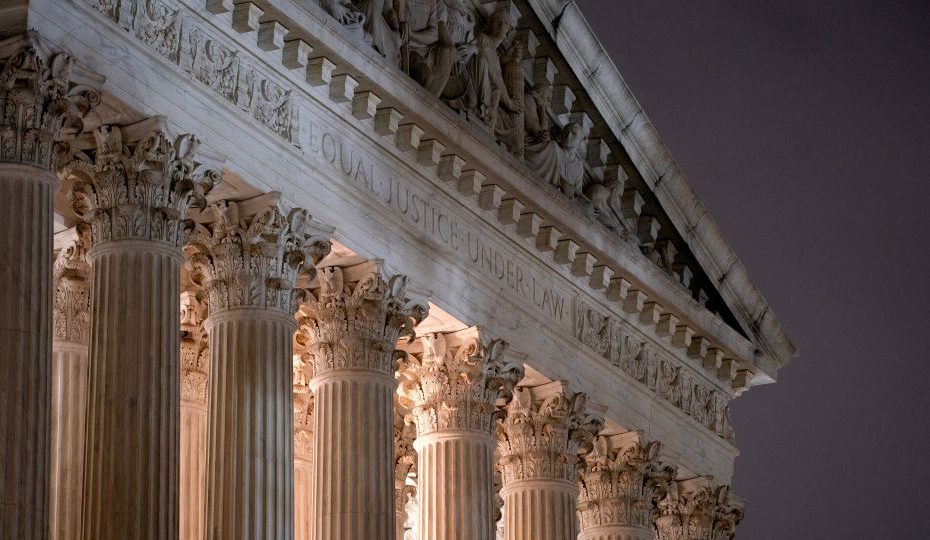Supreme Court Chief Justice John Roberts denounced what he described as “dangerous” statements by some officials about ignoring federal court rulings. He used an annual report weeks before President-elect Donald Trump took office to emphasize the importance of an independent judiciary.
Officials “from across the political spectrum have raised the specter of open contempt for federal court rulings,” Roberts wrote in the report, which was released by the Supreme Court on Tuesday. “These dangerous suggestions, however sporadic, must be strongly rejected.”
The chief justice did not indicate which officials he had in mind — and both Republicans and Democrats have hinted in recent years that they will defy court orders. Still, Roberts' year-end message arrived just days before the Jan. 20 inauguration of a president who has repeatedly blasted the federal judiciary as rigged.
Trump's agenda — especially on immigration — could put the new president on a collision course next year with a Supreme Court he helped build by appointing three conservative justices during his first term.
“Every government suffers defeats in the legal system – sometimes in cases of major consequence,” Roberts wrote. And yet, he added, “over the past few decades” both sides have respected court decisions and resisted the kind of constitutional confrontations that arose during the civil rights era, when some Southern states refused court orders to integrate.
In particular, Roberts pointed to decisions by the Eisenhower and Kennedy administrations to enforce rulings on school desegregation. For example, in 1957, President Dwight Eisenhower sent the 101st Airborne Division to Little Rock to integrate its schools after officials tried to defy Supreme Court decisions that found segregated schools unconstitutional.
Roberts complained that “government officials,” whom he also did not name, had “unfortunately” tried to intimidate judges by “suggesting political bias in the judge's unfavorable rulings without a credible basis for such allegations.” These attempts, he warned, are “inappropriate and must be vigorously opposed.”
As in years past, the chief justice avoided direct mention of the controversies and challenges brewing within the Supreme Court itself — including lingering questions about ethics, a weekslong scandal this year over controversial flags flown at Justice Samuel Alito's property and the dwindling public confidence in the nation. highest court.
In a series of interviews before the election, newly elected Vice President J.D. Vance expressed doubts about his loyalty to the Supreme Court's decisions. In a 2021 podcast, as The New York Times previously reported, Vance urged Trump to respond to adverse court rulings “as Andrew Jackson did and say, 'The chief justice has made his ruling. Let him enforce it now. ''
The likely apocryphal quote came in response to an 1832 decision that Jackson opposed that concerned Native Americans.
Trump himself has often criticized federal courts — including the Supreme Court — for unfavorable decisions. A Trump campaign spokesman earlier this week denounced the “political weaponization of our justice system” in response to a ruling by the federal appeals court in New York that upheld a jury's finding that the former president wrote E. .sexually abused Jean Carroll.
Democrats have also publicly toyed with refusing to enforce court decisions. New York Rep. Alexandria Ocasio-Cortez was criticized last year for suggesting on CNN that the Biden administration “ignore” a district court decision that would have halted the Food and Drug Administration's use of the abortion pill mifepristone. The Supreme Court stayed that decision and in June dismissed the lawsuit challenging broader access to the drug.
Roberts has repeatedly used his year-end report to tout the importance of an independent judiciary and to raise alarm about the threat of violence against judges. Two years ago, he emphasized in the same vein that “a legal system cannot and should not live in fear.”
In this year's report, Roberts added that “hostile foreign state actors” had accelerated attacks on the judiciary and other branches. In some cases, he said, “bots distort court decisions and use false or exaggerated narratives to stoke discord within our democracy.”
The report comes at the end of a year in which the conservative 6-3 majority granted former presidents sweeping immunity from criminal prosecution — and on a timeline that allowed Trump to avoid a trial on federal charges in two cases before the November election. This fall, the court will consider the ban on transgender care and a First Amendment challenge to a bipartisan ban on TikTok.
“The role of the judiciary,” Roberts wrote, is “to say what the law is.”
But, he added, “the independence of the judiciary will be undermined unless the other branches are resolute in their responsibility to enforce the court's decrees.”
For more CNN news and newsletters, create an account at CNN.com

